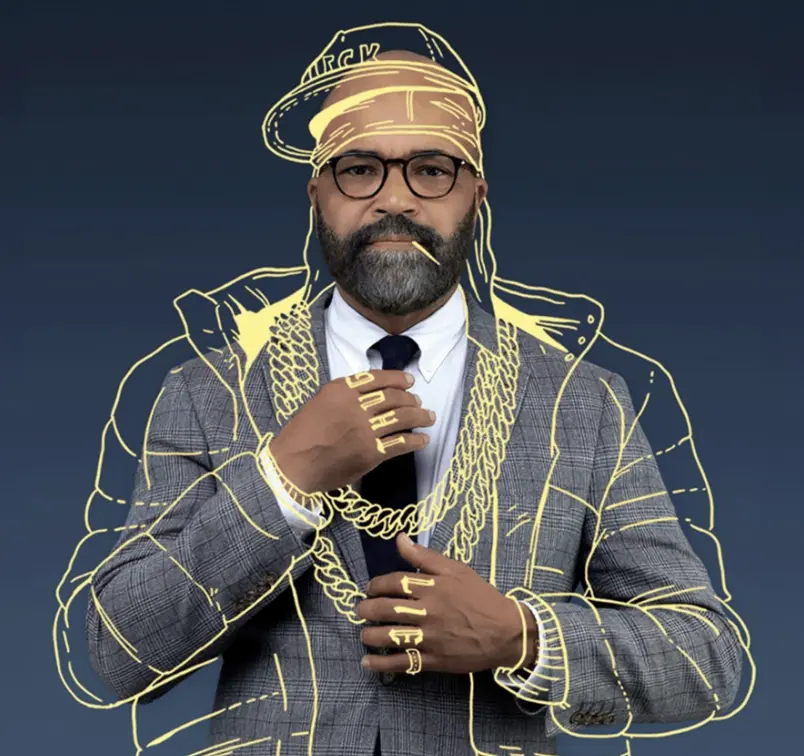Look, I'm not going to say that Oppenheimer wasn't a good movie - I think Nolan's fanboys would kill me if I did - but I definitely wasn't happy seeing it win Best Picture. Despite being huge films in 2023, both Oppenheimer and Barbie didn't really take that many risks - which is exactly what wins awards these days, so it makes sense. The real question is why films that feel meaningful without actually saying much are so popular these days. Ironically enough, we can find the answer in another Best Picture nominee : American Fiction.
I watched American Fiction even before it was nominated, and while I don’t think it deserved Best Picture, I wish the Academy had watched it a bit more closely. The film’s protagonist is Thelonius Ellison, an African American writer whose work is well-received by academics but not too popular with the general public.
This is a problem, of course, because in a capitalist system, ideas aren’t valued for their meaning but rather for their marketability. One of the most common remarks Ellison gets is that his books aren’t “black” enough. Audiences aren't interested in an upper-middle-class black man, they want something gritter.

Frustrated, then, Ellison decides to write a novel full of African American stereotypes, full of drugs, poverty, gangs, and of course a heavy “blaccent”. Ellison’s goal is just to mock the publishers who rejected him by giving them a pile of hot, racist garbage… but they end up loving it, of course. And so, Ellison walks into a trap of his own making, forced to pretend to be the escaped felon author of the novel - an identity entirely divorced from his actual upper-middle-class reality.
It sounds like a recipe for disaster, but it works out shockingly well, and his novel ends up winning an award and even gets a film adaptation.
That’s just my short summary, of course - I definitely recommend you watch the film to get the whole story. In any case, some people focus on the fact that the awards committee in the book is comprised of mostly white liberals, so they think the main point is that anti-racists try so hard they end up being racist again. But even the film itself points out that extremely stereotypical “hood” stories are a part of reality, which raises the more important question : why are only those stories celebrated and not others?

It’s an issue that doesn't just affect black stories, of course. Any story about minorities is expected to be focused on their worst hardships, regardless of whether or not those hardships are actually the core of their identity. A perfect example of this is queer stories, which have only recently started to explore topics beyond coming out, HIV, and casual sex. Why? Well it’s just like American Fiction tells us : it’s a money issue.
Our society is completely structured around creating profit. We want to go to the best schools so we can get the best jobs so we can get the best cars/houses/clothes/etc because once we have the best stuff, it must mean that we are living the “best” life. I can’t say for sure that this mindset leads people away from authenticity and towards extremes (like extreme wealth, extreme beauty, or extreme success), but even if it doesn’t, those are the kinds of stories that sell these days, so those are the stories we see.

Take Oppenheimer as an example. Like any other biopic, it’s inherently extreme as it tells the story of someone influential, someone who had something special : a brilliant mind. Then all you have to do is create an illusion of depth, especially if it's connected to current issues, and you've got a winner. In the case of Oppenheimer, that meant portraying the title character as morally ambiguous to engage some of the "white guilt" discourse and... voilà, Academy Award.
Let’s face it : art isn’t about sharing your truth anymore. It’s about telling the truth that people want to hear, the truth that they're used to hearing and which doesn’t take much effort to digest. It’s why we get Barbie’s lackluster feminism instead of an actually radical message : because "in our society, being a woman is hard sometimes" is a take most people are familiar with and accept. It's also why Ellison's normal books fail to sell in American Fiction : because it's easier to read a familiar extreme gangster story than a nuanced analysis from the perspective of an upper-middle-class black person.

What I love most about American Fiction is how it reminds us that the definition of “good art” these days often starts and ends with profitability. It helps us remember that when our favourite movies don’t get the attention or awards we think they receive, or when major films and franchises feel bland and uninspired, it doesn’t mean we have bad taste. It just means the system isn’t made to reward good art anymore, assuming that good art is thoughtful and meaningful. It might be a hollow consolation, but it’s a consolation nonetheless. After all, if enough of us realise how broken the system is, maybe one day we'll be able to start changing it.



 Iniciar sesión
Iniciar sesión

No hay comentarios,
¡sé la primera persona en comentar!